As a small business owner, do you find it challenging to manage your company’s database due to limited experience in IT management? You may already be aware that a data management system (DBMS) can help you address this issue. However, do you know which type of DBMS would be the most suitable for your specific priorities and requirements?
There are four primary types of data management systems, each with unique traits, functions, and purposes. Choosing the wrong type can result in challenges such as security risks, compliance issues, poor data organization, and excessive data redundancy.
It’s essential to understand each type of DBMS and how it functions. This information will help you choose a platform that simplifies data management, reduces data redundancy, and avoids the challenges mentioned earlier.
This article explains the benefits of four common types of data management services so you can choose the software that best fits your existing applications and IT infrastructure.
What is a data management system?
A data management system is software that efficiently stores, organizes, and retrieves data while ensuring accuracy and consistency through data constraints.
Different types of data management systems offer a user-friendly interface for navigating complex databases. They also provide data security, performance monitoring, backup, and recovery mechanisms.
Database management systems make it easier for small businesses to manage large volumes of data and new data types and add new data sources, applications, and tables to their databases, supporting scalability and growth. Find out below what are the different types of data management services.
Four types of data management systems
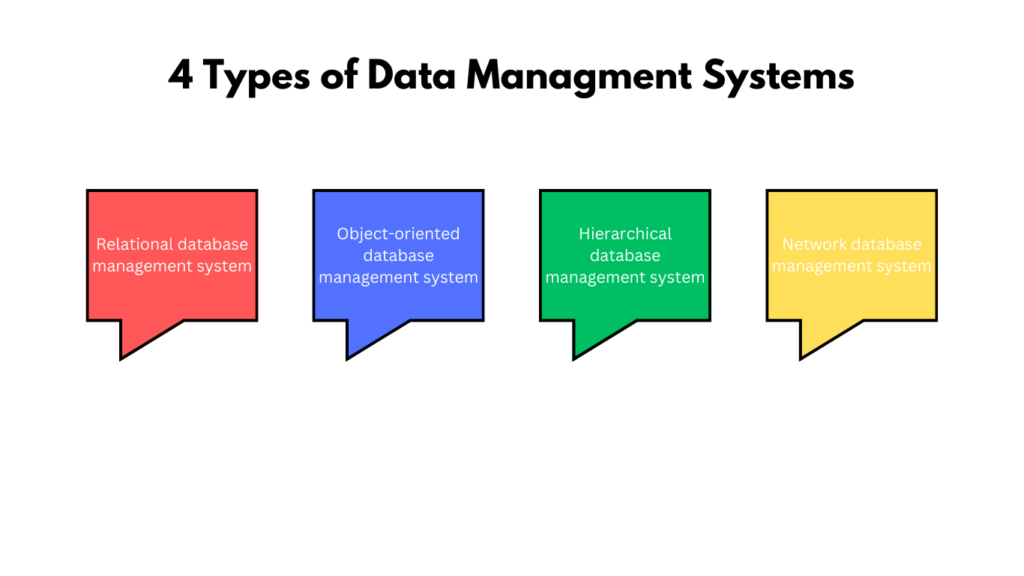
- Relational database management system (RDBMS):
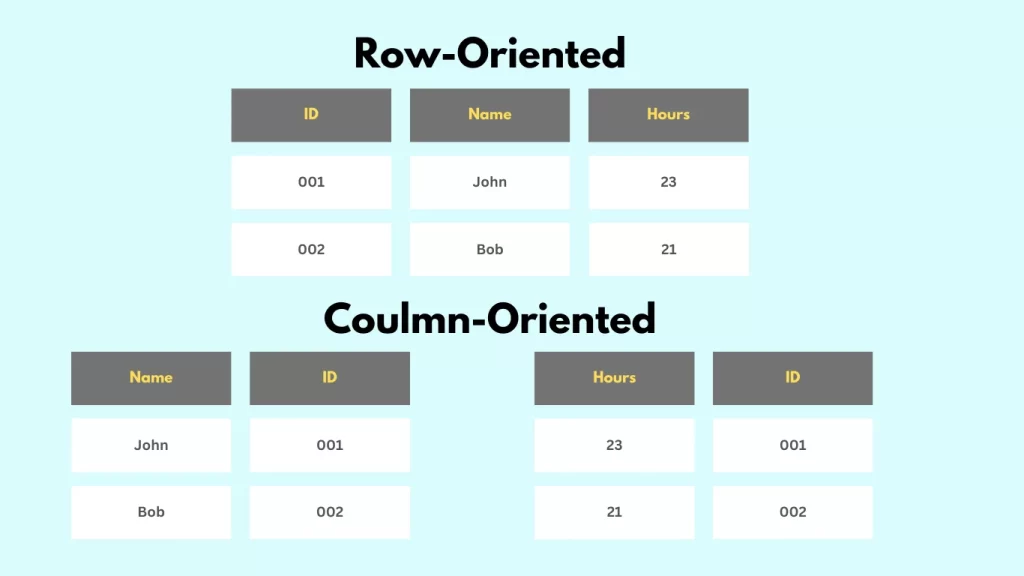
A relational database management system is one of the types of data management software that stores data in separate tables with columns and rows, just like a spreadsheet program. The tables can be connected using relationships, which enable you to access, organize, and update the data quickly and efficiently.
The relational model is a highly efficient way of storing data and is ideal for handling large numbers of concurrent users and transactions. Here are some reasons why you should consider investing in a relational database management system.
- Easy to use: An RDBMS offers a user-friendly interface for easy data entry and retrieval from a database.
- Secure: An RDBMS provides robust security features, including encryption, to protect confidential data stored in your database.
- Scalable: An RDBMS can scale to meet the demands of growing businesses by accommodating more significant amounts of data, users, and applications.
- Cost-effective: You can now easily set up and configure the relational database model without the need for external consultants.
2. Object-oriented database management system
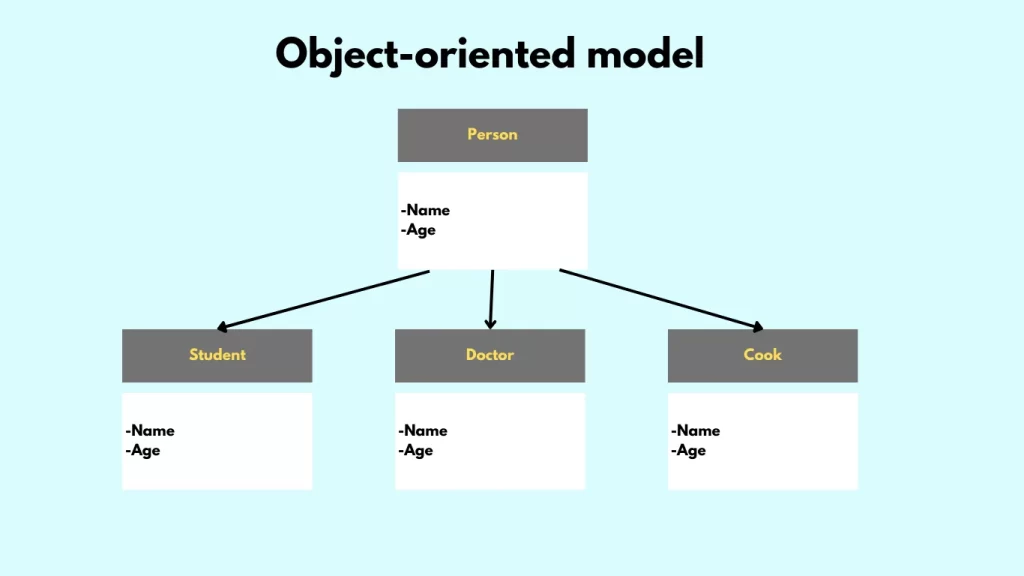
An Object-Oriented Database Management System is one of the types of data management that stores data in the form of objects and their relationships. It uses object-oriented programming languages such as Python, R, and PHP to access and manage the data. This enables your team to develop complex applications that need to work with the data stored in the database with ease.
This database model is commonly used for storing complex data types and maintaining their relationships. It is an excellent choice if you need more control over data while connecting the DBMS to other business applications.
As a small business, you may find the OODBMS data model to be a suitable choice for your web applications. This is because the model is specifically designed to handle complex data structures that are commonly used in web applications. Additionally, the model supports concurrency, which means that your web application can handle multiple user requests simultaneously.
Here are some reasons why you should consider investing in An Object-Oriented Database Management System.
- More flexibility and customization: An Object-Oriented Database Management System (OODBMS) provides greater flexibility and customization capabilities than a Relational Database Management System (RDBMS), allowing you to tailor your database to meet specific business needs.
- Improved performance: To save time and improve database performance, OODBMS stores and manages data in its native format, eliminating the need for data conversion before storage in a database.
- Less complexity: An Object-Oriented Database Management System (OODBMS) simplifies the creation of objects that represent real-world entities, like names, age groups, and addresses, thus reducing database complexity.
- Better control: An OODBMS provides data control features like access permissions, backups, and restoration to oversee data usage and prevent unauthorized modifications.
- Increased scalability: An OODBMS allows your small business to quickly scale up operations without investing in new hardware.
3. Hierarchical database management system
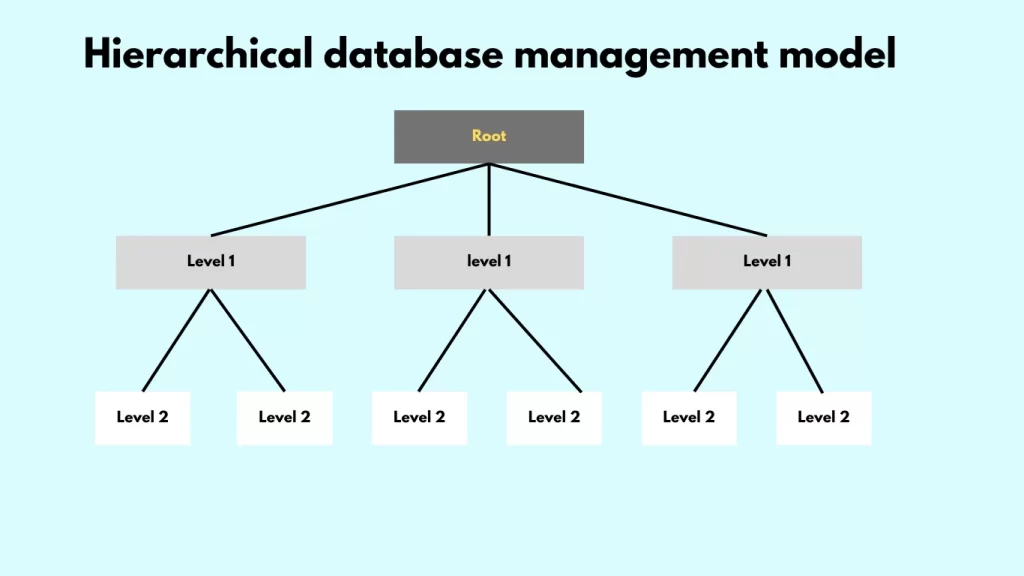
The hierarchical model is one of the types of data management method of organizing data into a tree-like structure that makes it easy for users to access and track their data. In this type of data management system, data is arranged in a hierarchy, with each level representing a different category of information.
Managing the growing volume of employee information in your database has become a challenge. In this case, you can use a Hierarchical Database Management System (HDBMS) to manage your data in a more organized way. With HDBMS, you can create a top-level category for different departments, and within each department category, you can have subcategories that contain employee data for that specific department. This will allow you to simply manage and analyze employee information from all departments, generate reports, and gain insights into your workforce.
Here are some reasons why you should consider investing in a hierarchical database management system.
- Ease of use: An HDBMS arranges data in a tree structure, making it easy for everyone to understand and use.
- Reduced costs: An HDBMS optimizes database storage and processing for small businesses, saving money.
- Enhanced decision-making: An HDBMS enables efficient data retrieval, analysis, and report generation to facilitate smart business decisions.
- Faster performance: An HDBMS offers faster query performance by retrieving data through hierarchy traversal, as opposed to a flat database where data is stored in a single table.
- Better data security: An HDBMS provides various security features, including encryption, data integrity, user authentication, and data auditing, to safeguard your data.
4. Network database management system
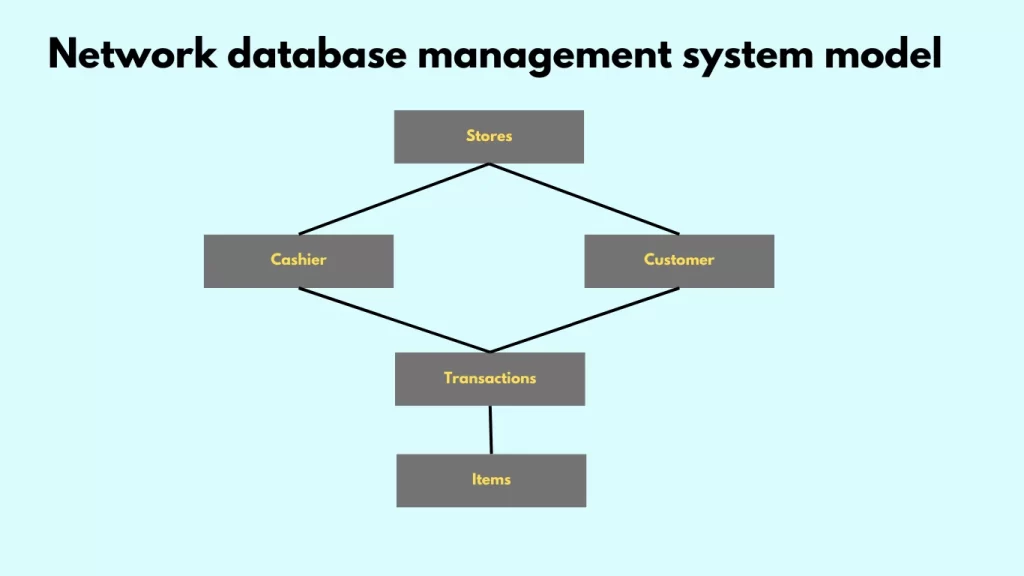
A network database management system is one of the types of data management software application that is designed to store, retrieve, and manage data in a networked environment. It enables multiple users on the network to share data. The system not only manages the data within the network but also ensures that it remains consistent across all connected devices.
If you have a vast area network (WAN) and need to share data across locations, a network database model is the way to go. It’s also useful when you want to maintain data consistency across different divisions in your business. Compared to other types of DBMS, network DBMS is more secure because the data is distributed across a network. This makes it harder for hackers to breach your data.
Here are some reasons why you should consider investing in a network database management system.
- Organized inventory: A network DBMS enables tracking inventory levels across products and departments to avoid stockouts by reordering items on time.
- Better employee management: Organize employees’ contact info, job history, and performance reviews with a network DBMS to identify top performers and address underperformance.
- Financial data management: A network database management system (DBMS) can help track financial data such as invoices, payments, and receipts, allowing for better monitoring of cash flow and spending.
- Improved decision-making: A network DBMS provides accurate, up-to-date data, which can be used to gain insights into daily operations, assess marketing campaigns, devise pricing strategies, and make crucial decisions that influence the growth of your small business.
Tips on finding the perfect types of data management system for you

To select one of the types of data management system for your business, you should first determine your specific needs. This also includes considering factors such as the amount and types of data you need to store, the number of people who need to access the DBMS software, and the types of operations you need to perform on the data.
It is also essential to consider the costs associated with implementing and maintaining the chosen database system. Some systems may require a significant upfront investment, while others may have ongoing costs for licensing, support, and updates.
It’s crucial to choose a user-friendly database system so that your employees can swiftly learn how to use the software without slowing down your business operations.
Finally, it is essential to consider the long-term scalability of one of the types of data management system. As your business grows, you’ll need a DBMS that can adapt and handle increased data storage and processing needs.
Why should you have a data management strategy?
Many companies used to rely on the data management systems built into their business applications. But now, with the increasing importance of data to the success of every enterprise and the vast amount of data available, it’s important for companies to take a more proactive and comprehensive approach to managing their data. This means being more involved and taking the initiative to manage data in a more effective manner.
Having a data management strategy and infrastructure can greatly impact a company’s overall success. Good thing there is multiple types of data management you can choose from. It helps bring everyone together by coordinating all activities and decisions towards the goal of delivering quality products and services to customers.
When data integration is seamless, and there are no information silos, each department, manager, and employee can understand their contribution to the company’s success. This keeps everyone aligned with its goals and helps them make decisions that benefit the company as a whole.
Conclusion
Data is the foundation of information. Efficient management and utilization of data can be a significant advantage for any organization. Therefore, the duties of database analysts (DBAs) and data management are transforming to become agents of change. They play a vital role in promoting the adoption of cloud technology, exploring innovative trends and technologies, and providing strategic value to the business.
We hope learning more about the different types of data management services can help you choose the best one to suit you and your business’s needs!





